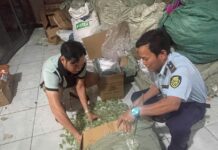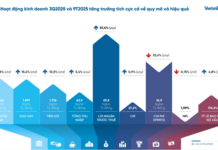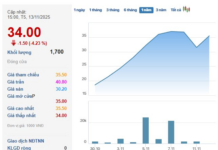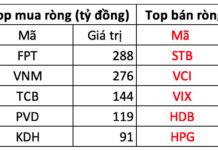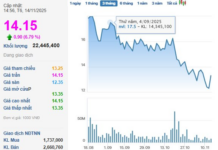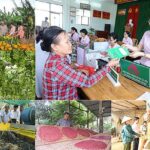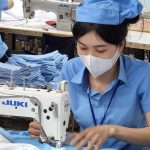The Ministry of Labour, Invalids and Social Affairs has sent the draft amended Law on Employment to the Ministry of Justice for appraisal, as part of the process of finalising it before submitting it to the Government. Notably, in this amendment, the drafting agency proposes to add more subjects to be supported with loans for overseas employment under contracts.
OVERSEAS LABOUR CONTRIBUTES TO EMPLOYMENT SOLUTIONS AND POVERTY REDUCTION
According to the Ministry of Labour, Invalids and Social Affairs, the Law on Employment stipulates that only five groups of workers are eligible for loans for overseas employment under contracts. These include: ethnic minority workers; workers from poor households; workers from near-poor households; workers whose agricultural land has been revoked; and relatives of people with great contributions to the revolution.
However, the number of beneficiaries is small. According to the report on the implementation of the Law on Employment 2013, from 2017 up to now, only about 1,800 workers have been supported.
Meanwhile, many localities have issued policies to support this group of subjects to work abroad under contracts from local budget sources for some other subjects such as youths who have completed military service or public security duties, and youths who have completed their voluntary work in programmes and projects for socio-economic development.
In reality, some of the above-mentioned groups of subjects have not been stipulated, or are stipulated according to the regulations of each locality. Therefore, there is a lack of equality in terms of opportunities to access preferential credit for overseas employment.
During the period of 2016-2020, the country sent about 627,000 labourers to work abroad under contracts, averaging 125,000 labourers per year, mainly in markets with good incomes and stable jobs such as Japan, South Korea, and Taiwan (China)…
In 2021, due to the impact of the COVID-19 pandemic, many foreign labour markets temporarily stopped or limited the entry of Vietnamese labourers, so the number of labourers sent abroad decreased significantly (45,000 labourers).
However, by 2022, many countries had opened up opportunities for Vietnamese labourers to work abroad. In 2022 alone, 142,779 labourers were sent abroad, and in 2023, the number was 159,986. This has made an important contribution to employment creation, increased income, and sustainable poverty reduction. At the same time, it has also been a source of quality labour when they return to the country.
The Ministry of Labour, Invalids and Social Affairs said that sending labourers to work abroad is identified as one of the important channels to contribute to solving employment and sustainable poverty reduction.
On the other hand, Directive No. 05-CT/TW dated June 23, 2021, of the Party Central Committee’s Secretariat on strengthening the Party’s leadership in poverty reduction for the period of 2021-2030; Resolution No. 24/2021/QH15 of the National Assembly approving the investment policy for the National Target Programme on Sustainable Poverty Reduction for the period of 2021-2025; and Decision No. 90/QD-TTg of the Prime Minister approving the National Target Programme on Sustainable Poverty Reduction for the period of 2021-2025, have all stipulated the support for sending workers living in districts, xã (communes) with special difficulties in the coastal and island areas to work abroad under contracts.
Based on the above grounds, in the draft amended Law on Employment, the Ministry of Labour, Invalids and Social Affairs proposes to add some subjects to be supported with loans for overseas employment.
REVIEW AND CONSIDERATION OF EXPANDING THE SUBJECT GROUPS
Accordingly, in addition to the five groups supported under the current law, the drafting committee proposes to add the following groups: workers from households that have recently escaped poverty or have a medium standard of living; workers from ethnic minority and mountainous areas; workers from xã (communes) with special difficulties in coastal, estuarine and island areas; and youths who have completed military service, public security duties, or voluntary work in programmes, projects, or intellectual youth volunteers who have completed their tasks in economic-defence zones.
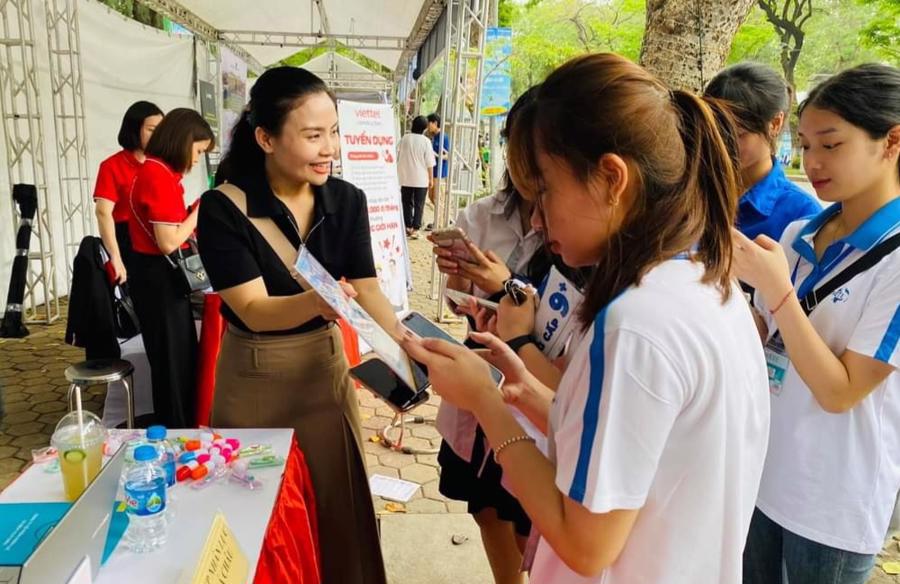
With this option, the Ministry of Labour, Invalids and Social Affairs said that there would be an increase in the cost of supporting workers to work abroad under contracts for these subjects.
Currently, according to Decision No. 90/QD-TTg of the Prime Minister approving the National Target Programme on Sustainable Poverty Reduction for the period of 2021-2025, the total capital to support workers to work abroad under contracts in the period of 2021-2025 is about VND570 billion.
Of this, VND270 billion will come from the central budget, VND200 billion from local budgets, and VND100 billion from other legal capital mobilisation. The average is about VND115 billion per year.
Commenting on the draft amended Law on Employment, the Ministry of Finance proposed that the expansion of the above-mentioned subjects should be carefully considered, and at the same time, requested the drafting agency to specifically report the basis for this proposal.
According to the Ministry of Finance, the addition of subjects to be supported by the state budget without distinguishing the ability to pay of the subjects could lead to waste of state budget resources and a lack of focus on prioritising resources for disadvantaged subjects.
In addition, the above-mentioned subjects are not policy subjects eligible for preferential credit through the Social Policy Bank, which is inconsistent with the bank’s objective of providing preferential credit to the poor and other policy subjects.
The Ministry of Finance also requested the drafting agency to carefully review the relevant legal provisions in the fields of national defence, security, and economic-defence zones to ensure that there is no overlap in support policies for the above-mentioned subjects.
On June 8, 2023, the National Assembly issued Resolution No. 89/2023/QH15 on the Law and Ordinance Building Programme for 2023, adjusting the Law and Ordinance Building Programme for 2024. Accordingly, the draft amended Law on Employment is expected to be submitted to the National Assembly for comments at the 8th session in October 2024.
The scope of adjustment of the amended Law on Employment includes: policies to support job creation; labour registration and management; the labour market information system; vocational skill development; employment services; unemployment insurance; and state management of employment.
Territory-based credit policy in Ho Chi Minh City shows nearly 39% growth
Credit programs, not only support and assist the poor and vulnerable, who are the main subjects of policies in Ho Chi Minh City, with capital for production and business to create livelihoods and employment opportunities, but also play a significant role in the direction of sustainable economic development, economic growth, and social security ensured by the Government.
What is the average salary at companies?
The Ministry of Labor, Invalids and Social Affairs requires units under the Ministry and localities to review and understand the production and business situation of enterprises, labor recruitment needs, especially FDI enterprises, and labor-intensive industries (textiles, footwear, wood production…) immediately after Tet holiday in order to come up with a plan to connect labor supply and demand.
From poverty to prosperity: The rise of a mountainous province as a “phenomenon” with numerous “farmer millionaires”
Located among the poorest areas in the country with the lowest average income nationwide, this region has recently seen the rise of numerous millionaire and billionaire farmers.




